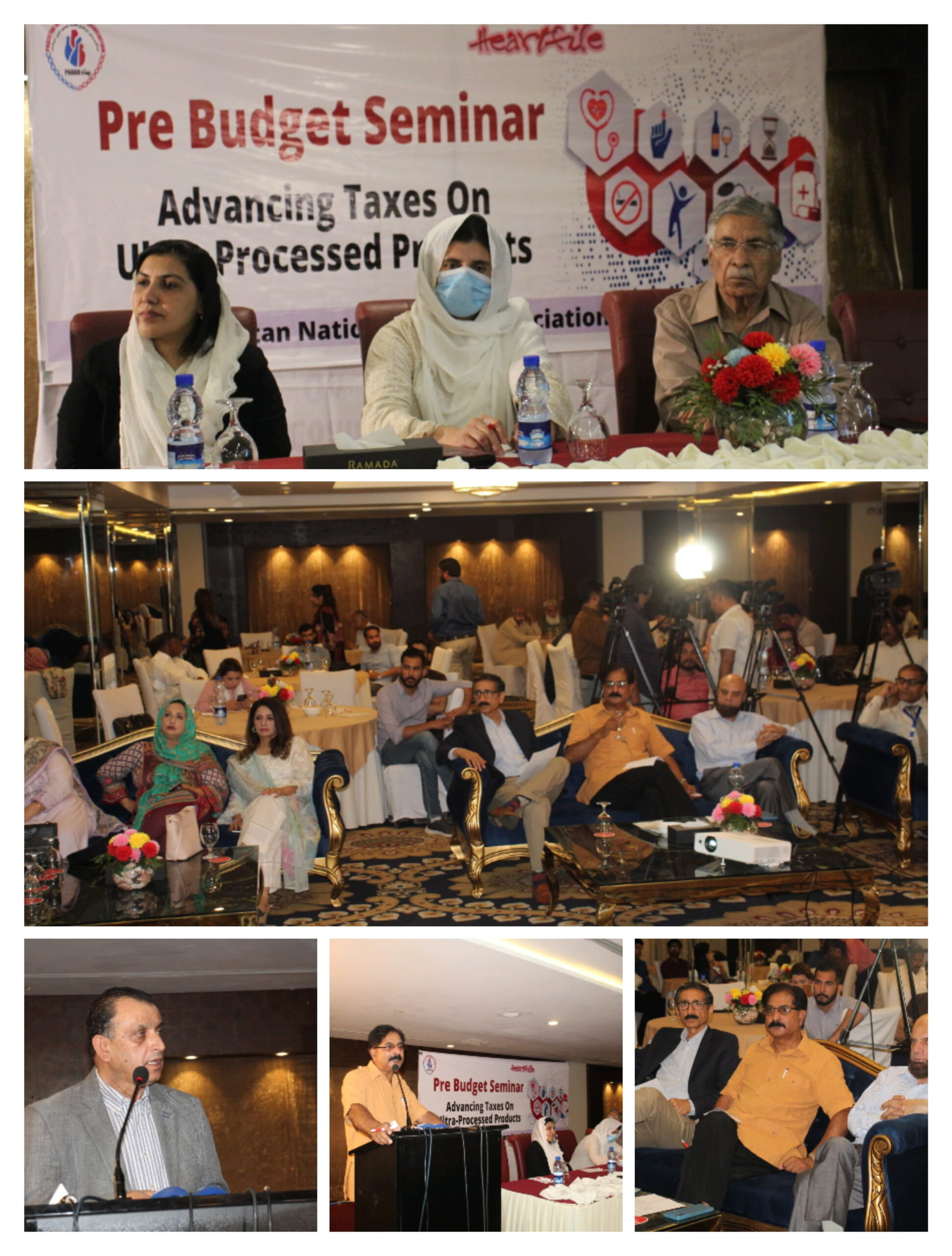. Non-communicable diseases are alarmingly on the rise in Pakistan.
04 June, 2024 Islamabad. Non-communicable diseases are alarmingly on the rise in Pakistan. 1100 people dying daily due to diabetes and its complications, over 300 limbs removed every day. Pakistan has 3rd highest burden of people living with diabetes with 33 million diabetics, apart from this 10 million people are pre-diabetic. Without immediate policy action number of people living with diabetes will increase to 62 million by 2045. Consumption of If modifiable risk factors of these diseases are controlled, the spread of these diseases can be reduced to a great extent. Ultra-processed food and beverage products are being particularly high in sugar, salt and/or trans-fats. Increasing taxes on these products is an evidence based strategy to reduce their consumption and the associated health risks. Parliamentarians are urged to support the increase of excise taxes on all solid and liquid ultra-processed products in the Finance Bill 2024-25 to address the growing disease burden in Pakistan. This measure will not only reduce health issues but also generate additional government revenue, which should be allocated to public health programs and subsidies for healthier alternatives like fruits, vegetables, lentils, and unsweetened milk. Policymakers must reject the tactics of beverage industry to mislead them on the name of investment. These tactics of the beverage industry which is not in the interest of peoples of Pakistan, neither for economy of the country. Government must reject any such investment plan that adds miseries by building a huge burden on the health sector and hence, economy of the country. This was said in a pre-budget seminar with parliamentarians organized by Pakistan National Heart Association (PANAH) at a local hotel in Islamabad.
President PANAH, Maj. Gen. (R) Masud Ur Rehman Kiani said that in Pakistan one person suffers a heart attack every one and a half minute. Other non-communicable diseases are also at an alarming rise. If modifiable risk factors of these diseases are controlled, there will be a significant decrease in these diseases. Unhealthy diet like ultra-processed foods and beverage products are among the major reasons of these diseases due to very high amount of sugar, sodium and trans-fats. Government shall take the immediate policy measures to control the consumption of these unhealthy foods.
Mr. Munawar Hussain, country coordinator at Global Health Advocacy Incubator (GHAI) said that Increasing taxes on sugary drinks is first and most effective policy options to reduce the consumption of these drinks, “The cost of management of diabetes has increased to more than $2640 million in Pakistan in 2021” he added. The annual cost of managing diabetes is double than what Pakistan is asking to IMF annually for the new program. The research shows that 30 % risk of diabetes is attributed to increased consumption of sugary drinks and juices” he added. “More than 100 countries and states across the globe has already imposed high taxes on sugary drinks to discourage their consumption due to consequences on public health” he said. While referring to a World Bank study about Pakistan, he said If government increases 50% federal excise duty on all sugary drinks, it will bring health gain of 8500 DALYs, economic value of USD 8.9 million to public health and USD 810 million average annual tax revenue for the next ten years. He urged parliamentarians to allocate the revenue fully or partially for public health programs and subsidize healthier options.
Col. Dr. Shakeel Ahmed Mirza said that Sugary drinks and juices are among the major risk factors of diabetes, heart diseases, cancer, kidney failure and other chronic diseases. 1100 people dying daily due to diabetes and its complications, over 300 limbs removed every day. Pakistan has 3rd highest burden of people living with diabetes with 33 million diabetics, apart from this 10 million people are pre-diabetic. Government must deal this on war footings and do all possible measure to control the modifiable risk factors of these diseases.
Mr. Sanaullah Ghumman urged policymakers not to be influenced by the tactics of the beverage industry. Government must reject any such investment plan on the name of rural economy and export by beverage industry which leads to killing people and adding miseries by building a huge burden on the health sector and hence, economy of the country. He said that the beverage industry has low taxes in Pakistan as compared to many countries regionally and globally. For example, Saudi Arabia, Qatar, Oman, UAE and other gulf states have imposed 50% excise duty on sodas and 100 % on energy drinks. Even India has a higher tax on beverage industry than Pakistan which includes 40% tax in total. Maldives imposed $2.25 litter levy on each litter of beverage. More than 100 countries and states across the globe has already imposed high taxes on sugary drinks to discourage their consumption due to consequences on public health. He urged parliamentarians to increase taxes on ultra-processed food and beverage products in Finance Bill 2024-25.
Other speakers also spoke emphasized policymakers to prioritize public health over corporate interests and increase taxes on ultra-processed food and beverage products in Finance Bill 2024-25 for the interest of public health




